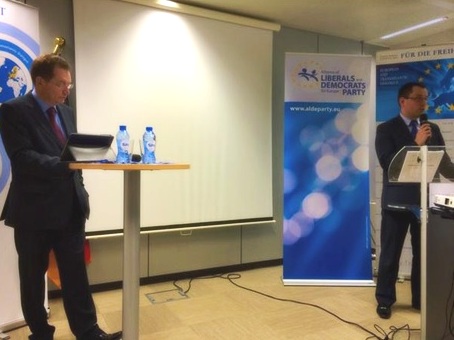The Friedrich Naumann Foundation for Freedom and ALDE organized a joint event on the challenges for the Latvian EU Presidency: balancing the economic growth and sanctions on Russia.
Latvia took over the Presidency of the Council of the European Union for the first time since it became an EU member state. The focal point of the country’s presidency will be the promotion of jobs and growth.
Having suffered by the severe economic crisis itself, Latvia has become one of the fastest growing countries. According to Mr. Jānis Bērziņš, (Spokesperson at Latvia’s Permanent Representation to the EU), investment from EU structural funds was a key factor that kept Latvian economy going during the crisis.
He referred to the Greek elections and the win of anti-austerity left coalition Syriza by saying that even if Latvian Presidency had not anticipated the imminent elections, it is looking forward to working with Greece and the new government. Additionally, he expressed his hope that Greece will follow the agreed path and continue creating the conditions for sustained economic growth.
At the same time, foreign affairs loom large over Latvia’s presidency. Sharing a border with Russia, the Ukraine crisis seems particularly close to this state and other partners in the East are counting on Latvia to deepen cooperation with the EU. On the aspect of Ukraine crisis, Sir Graham Watson (the leader of ALDE) and Mr. Jānis Bērziņš agreed that the economic sanctions on Russia are right and urged the EU to step up sanctions against Russia in order to de-escalate the rapidly deteriorating situation in Ukraine. On the long term, Mr. Jānis Bērziņš would like to see in the future a free trade partnership between EU and Russia. He underlined that European Council would need to continue exerting pressure and, if necessary, to agree on further steps.

